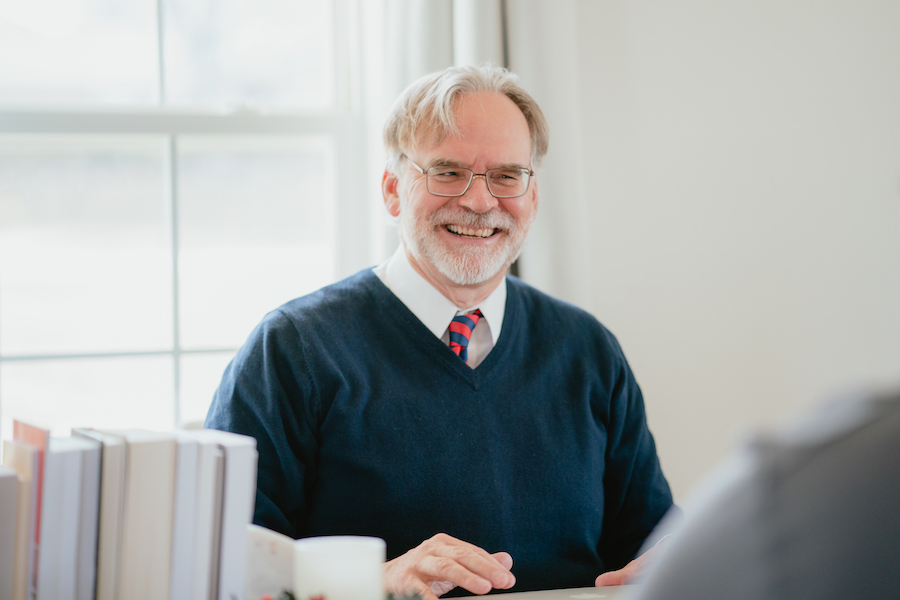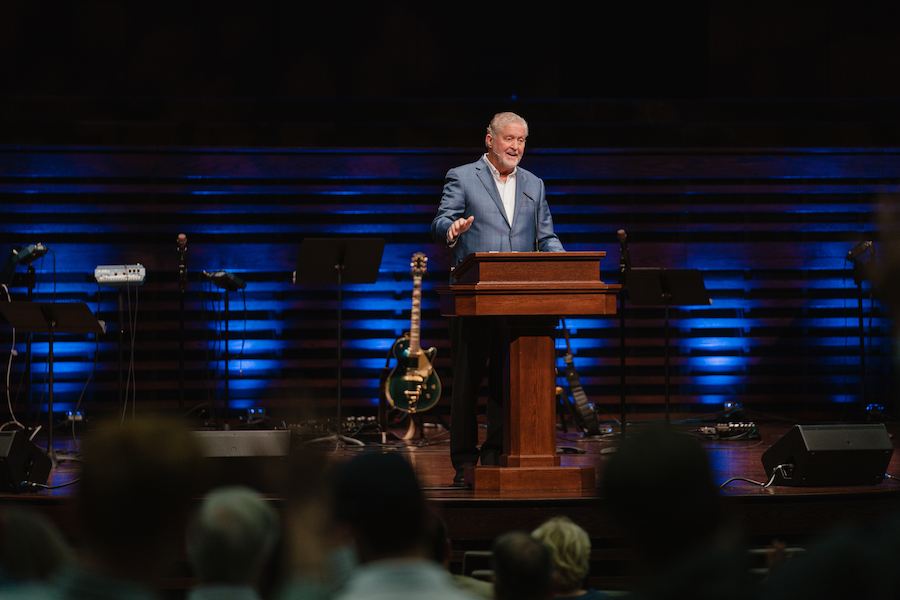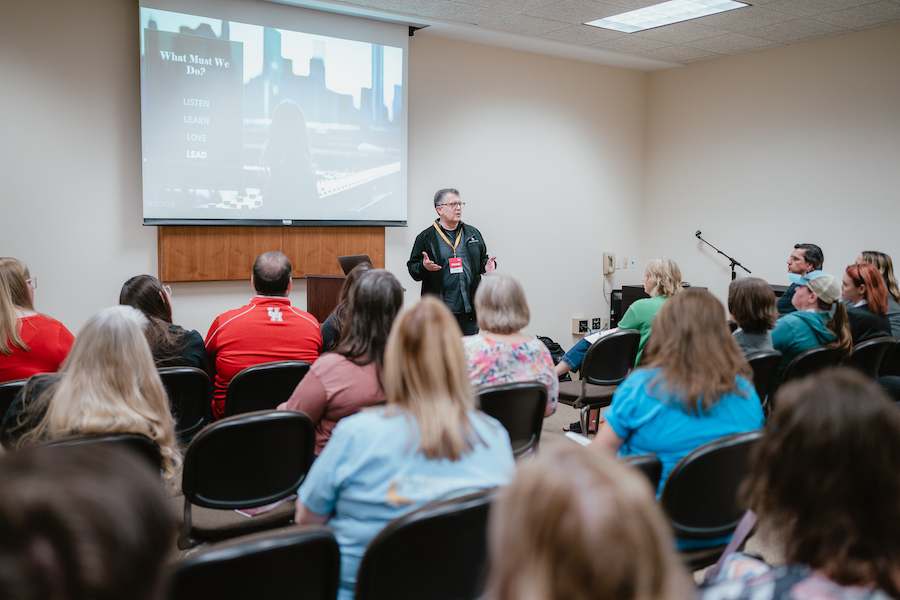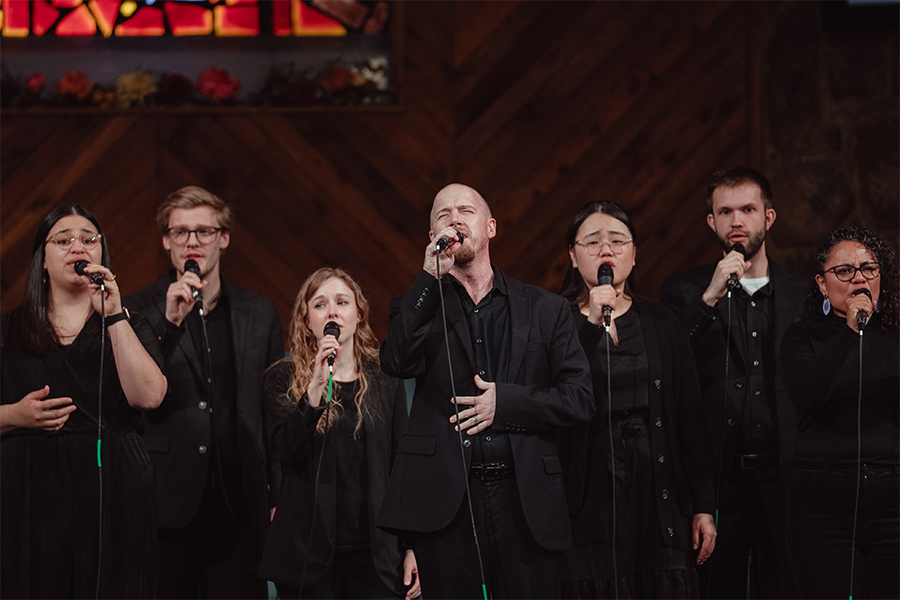FROM THE HILL: Greenway affirms importance of inerrancy with integrity, Arnold discusses mission history in ‘Cancel Culture’ age, McCoy considers legacy of Ruth Bader Ginsburg
October 12, 2020
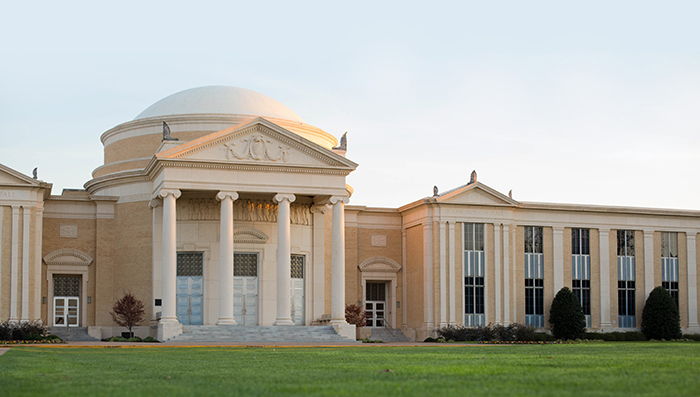

“From the Hill” is a regular series highlighting the work of Southwestern Baptist Theological Seminary’s faculty. Check back here regularly to find articles, blogs, podcasts, interviews, and more.
- “FIRST-PERSON: How corporate worship can be evangelistic” (article in Baptist Press), by Scott Aniol, associate professor of church music and worship, worship doctoral studies director
- “I would like to suggest that the relationship between worship and evangelism is actually more complementary than either of these perspectives imply. Rather than pitting worship and evangelism against each other, we should shape corporate worship in such a way that it is itself profoundly evangelistic.”
- “Missions History in a ‘Cancel Culture’ Age: Jonathan Arnold Explains,” Jonathan W. Arnold (associate professor of church history and historical theology, director of research doctoral studies) interviewed on “The Missions Podcast”
- “Christians live in an age of iconoclasm. How can we do church history and modern missions history responsibly—without falling into the opposite errors of hero-worship or ‘cancel culture’? Jonathan Arnold, associate professor of church history and historical theology at Southwestern Baptist Theological Seminary, weighs in from his perspective as a church historian.
- “A conversation with David Dockery,” David S. Dockery (distinguished professor of theology, editor of the Southwestern Journal of Theology, special consultant to the president, theologian-in-residence at the B.H. Carroll Center for Baptist Heritage and Mission) interviewed on World Radio
- “This week, hear Warren Smith’s conversation with one of the elder statesmen of Christian higher education in this country, Dr. David Dockery.”
- “After the election, how do we repair what’s been broken?”, Adam W. Greenway (president of Southwestern Seminary and Scarborough College, professor of evangelism and apologetics) interviewed in article in The Dallas Morning News
- “At a fundamental level, we have to recapture the ability to see people as people, remarkably similar to us in more ways than we can realize. A man or woman created in the image of God should be treated with a level of dignity and respect.”
- “FIRST-PERSON: Inerrancy still matters; so does integrity” (article in Baptist Press), by Adam W. Greenway
- “I believe that inerrancy without integrity is meaningless. May the Lord bind these two things together in us, afresh and anew, in our daily lives. Furthermore, may the Lord make each of us agents of reconciliation and grace with each other and to those outside our faith family. Yes, inerrancy matters. But so does integrity. It is truly not ‘either/or,’ but ‘both/and.’”
- “Leadership Lessons with Adam Greenway and Todd Gray,” Adam W. Greenway, interviewed by the Kentucky Baptist Convention
- “You won’t want to miss this advice and wisdom from a leader who is near and dear to Kentucky, Dr. Adam Greenway.”
- “Importance of Being Age Aware,” Karen Kennemur (associate professor of children’s ministry, Bessie Fleming Chair of Childhood Education) interviewed on “LifeWay Kids” podcast
- Dr. Karen Kennemur joins the podcast to discuss how different ages learn different ways and how kids ministries need to be aware of it.
- “Culture Friday – Academia’s new McCarthyism,” Katie McCoy (assistant professor of theology in women’s studies) interviewed on “The World and Everything in It” podcast
- “What begins in the academy always goes mainstream. So, some of what we’re seeing is just the natural rhythm of society, that what begins in the academy eventually goes mainstream. And that’s really what we’re just seeing writ large in our culture today.”
- “Culture Friday – Feminism and the Supreme Court,” Katie McCoy, interviewed on “The World and Everything in It” podcast
- “[W]e can look at the disparities that had existed and appreciate [Ruth Bader] Ginsburg’s work. There were genuine, legal inequities that regarded women as having fewer legal rights than men. But here’s what I would want my students to see if I were talking to them: We advocate and affirm the legal, equal rights of all people because we are all equal image-bearers of our Creator. And that is an inviolable dignity that we have before Him, and therefore our laws should reflect that. And then that dignity, though, extends to all persons, including the unborn.”
- “Why Kamala Harris Is The Worst Candidate for Christian Women” (article in The Federalist) by Katie McCoy
- “For many female voters, Sen. Kamala Harris is a compelling candidate for vice president. For evangelical women, who are more likely to scrutinize her policy ideas than her fashion choices, however, the prospect of the junior senator from California becoming one heartbeat away from the presidency sounds an alarm.”
- “Medical Missionary Dr. Rebekah Ann Naylor,” Rebekah Naylor (distinguished professor of missions, missionary in residence) interviewed by The Alabama Baptist
- “With more than 30 years on the mission field in India, a lifetime of surgical and teaching experience, and service in a variety of other roles such as evangelism, church planting and health care consulting, Dr. Naylor has most recently been appointed as the first female to hold a distinguished professorship at Southwestern Baptist Theological Seminary in Fort Worth, Texas.”
- “Personal evangelism gets creative, overcomes coronavirus barriers,” Matt Queen (associate dean of the Roy J. Fish School of Evangelism and Missions, L.R. Scarborough Chair of Evangelism, associate professor of evangelism) interviewed in article in Texan Online
- “Sharing the gospel with those in our normal social circle generally is not inhibited by coronavirus restrictions, Queen said. But it can ‘be kind of awkward’ to bring up Christ if a Christian has known someone for years but has never broached the subject. To break the ice, a believer can say, ‘I’ve really been thinking a lot through COVID,’ and ‘I realized that I have sinned against you. I want you to know I need to ask your forgiveness.’ Tell the person the sin is failing to talk about the hope available in Jesus, Queen said. Then admit the reason for hesitancy was fear of how they would react. Finally, begin a gospel presentation.”
- “Christology in Chalcedon: Creed and Contextualization” (article in the Southeastern Theological Review), by Malcolm B. Yarnell III, research professor of theology
- “In this essay, the author rehearses the contextual theology of the Council of Chalcedon in order to derive lessons for contemporary Christianity. After defining theology and history as inextricable, the troubled search for dogmatic unity regarding the identity of Jesus Christ among the pro-Nicene fathers is traced through the two councils of Ephesus (431 and 449) and through Chalcedon (451). A theological analysis of the Formula of Chalcedon compares favorably with its varied reception by diverse Christian churches. Next, the longstanding divisions in piety and theology that arose with Roman imperial coercion are evaluated. The author derives seven lessons from a comparison between the Constantinian traditions and the canonical teachings of Jesus Christ.”
